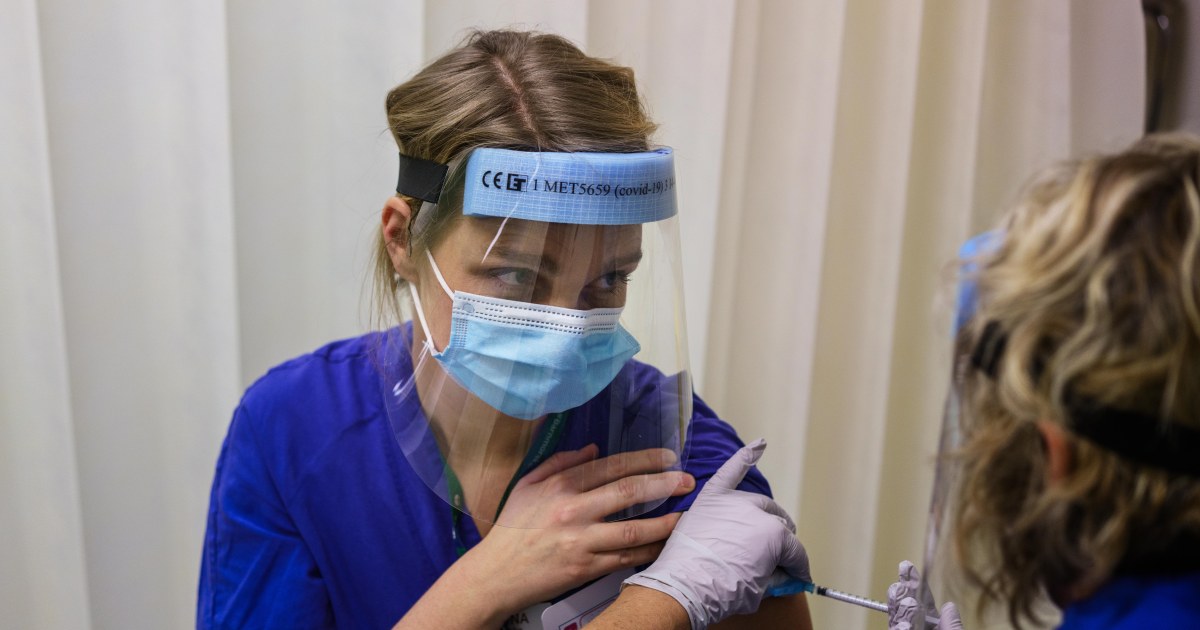The title was not really wrong, and this report will review the latest developments related to the Corona pandemic and its news from a positive angle, and we move away a little from the negative news that we read every day about the epidemic.
Daily injuries around the world decreased for the third day in a row, and the lowest Sunday in weeks was recorded, with 404,266 injuries, down 20% from Saturday, and 8,457 deaths were recorded, down more than 35% from the same day.
For his part, Anthony Fauci, an American specialist in immunology and director of the National Institute of Allergy and Infectious Diseases, said that no hospitalizations or deaths were recorded from taking the Corona vaccine.
Optimism in Russia
Kremlin spokesman Dmitry Peskov said that the current situation regarding the spread of the Corona virus in Russia gives rise to cautious optimism.
Peskov added that the epidemiological situation in Russia raises cautious optimism, but it is changing, and that is why there are no decisions regarding the date and wording of the president's letter to the Federal Assembly yet.
Earlier, Moscow Governor Sergey Sobyanin announced the easing of restrictions imposed due to the Corona virus.
Decline in Belgium
The Belgian health authorities revealed a significant decrease in the number of people infected with the emerging corona virus (Covid-19) who need treatment in hospitals.
The Belgian Center for Crisis Management indicated - in its daily report - that 75 injured were hospitalized yesterday, which is the lowest number since the third of last October, according to the Italian news agency AKI.
The center's experts expressed their optimism about this decline, saying, "If things continue as this, then it is possible to consider easing restrictions as of the middle of this month or the beginning of next March."
New vaccine in Germany
The German pharmaceutical giant, BAYER, announced its project to produce a vaccine against the emerging corona virus, during an online conference with its partner, CureVac, and officials from the German government today, Monday.
"After discussions with the German government, it became clear that the current manufacturing capacity of vaccines needs to be increased, especially with regard to possible variants of the SARS virus (Covid-2)," Bayer’s head of pharmaceuticals, Stefan Ulrich, told reporters.
Health Minister Jens Young indicated that the "Curvac" vaccine is on its way to obtaining regulatory approval, and that it provides a long-term supply, for example if people need booster injections later in the year.
"By the end of the year, we will have several hundreds of millions of doses available," said CureVac CEO Franz-Werner Haas.
75 million Pfizer-Bionic vaccines
The European Commission announced today that it will seek to secure 75 million doses of the "Pfizer-BioNTech" vaccine against the Coronavirus in the second quarter of this year, to reach 600 million doses by the end of 2021.
The announcement came in a tweet by UNHCR President Ursula von der Leyen, via her Twitter account.
Der Line said the commission is working extensively with pharmaceutical companies to provide vaccines to Europeans.
She added that the Union will provide 75 million doses of the "Pfizer-Biontech" vaccine in the second quarter of this year, out of the 600 million doses it aims to provide by the end of 2021.
Relaxation of restrictions
Italy has eased restrictions against Covid-19 in effect in most of its regions, the vast majority of which will be classified at the yellow level, with the exception of Alto Adige (north), Umbria (center) and Puglia and the islands of Sicily and Sardinia (south), which are classified orange areas of moderate risk, and no region is no longer classified as red. .
The easing of restrictions will allow bars and restaurants to reopen during the day and museums during the week, and the night curfew will remain in place throughout the country.
On the other hand, museums, libraries, art galleries and malls today reopened their doors in Poland, as restrictions were eased to combat the outbreak of the epidemic.
Vaccination in Palestine
Palestinian Prime Minister Muhammad Shtayyeh announced today that his government will begin vaccination against the Corona virus in mid-February.
He added - at the beginning of the weekly cabinet session - that Palestine will receive the first batch of the vaccine (50 thousand doses) from several sources, the most important of which is the international "COVAX" mechanism, and vaccination will start in the middle of this month.
Shtayyeh expected the arrival of another batch of the vaccine at the end of February, without specifying its quantity, explaining that the vaccination campaign will include the West Bank and Gaza Strip.

